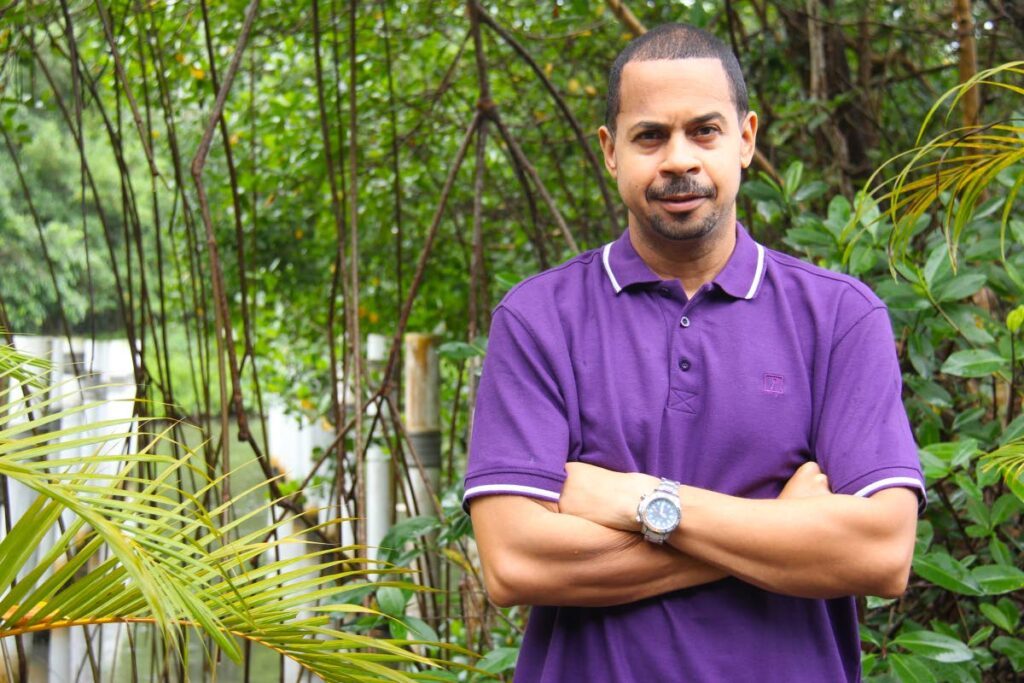More of same won't fix crime

Paolo Kernahan
THE MURDER toll is getting ever closer – snapping ferociously at the heels of the bloody record set last year. We're still no closer to seeing the change desperately needed in crime-fighting today.
Curiously, this week the PM barked out a peculiar statement suggesting he's reached the end of his rope with criminality. All this time the rest of us have been bound by that rope and, in many cases, strung up by it for far longer than Rowley seems remotely aware.
Among the remarks was this dizzying excerpt, "...TT has gone from beyond concerning to the ridiculous."
Apparently, murders, daily robberies, car thefts, smash-and-grabs and home invasions were only concerning up to the point that the PM thundered out his paternal disapproval.
What exactly brought him to this revelation? Why didn't the PM draw the line with the execution of four whole children last month?
Why wasn't he yanked from his post-golfing torpor to say "no more!" after the murder of 13-year-old Andrea Lallan – the teenager shot in her head as she slept? Andrea's life was extinguished because she reported being raped. She was killed for doing precisely what the PM and the police are asking us to do – help them to fight the criminals.
The PM's statement regurgitated the typical prêt-à-porter platitudes, "The State will redouble its efforts to curtail these violent outbursts..." Blah blah blah – pass me the rum and stop killin' the chaser man!
It's impossible to say for sure, but the PM's oddly-timed blunderbuss is likely motivated more by politics than efficacy concerns.
Most, if not all, decisions made by the government are driven by political considerations. That's why this administration could sell the recruitment of more police as a legitimate crime-fighting tactic. It's an easy way to create more vote-getting jobs and bamboozle the beleaguered public into believing the State is doing something about the bloody siege.
Hiring more police just means more state employees suckling at the teat of a hopelessly dysfunctional system. A politics-first approach to governance produces predictable failures – like a million dollars worth of useless wooden ladders (a well-intentioned but poorly executed decision).
Rowley put more effort and passion into vanquishing former CoP Gary Griffith than any other cause under his gaze during the entirety of his time as PM. The only exception is, perhaps, his insistence on keeping the plainly incapable Fitzgerald Hinds in place. With this kind of thinking in play, the public shouldn't expect to see a shift in tack that will make us any safer.
There are some common-sense measures that, while not as sexy as throwing more money at the problem, would yield better results. Even if we were to go with the idea that more police is better, the question comes down to management. How are officers being deployed strategically and effectively?
Management of the human resources within the police service should be a priority. Police patrols should be structured and carried out following a community-needs analysis and rotated periodically to ensure the best coverage possible. It's not about the police being everywhere, it's about creating a pervasive atmosphere of policing. Junior officers should be walking a daily beat, connecting with communities, rather than waiting for members of the public to walk into a police station with a buss head or some similar grievance.
Moreover, the police service should be integrating technology into its work more effectively. Station diaries should all be burned on a gobar-fuelled pyre. Every police report must be put into computers networked across the country.
An officer in Brasso Venado in central Trinidad should be able to pull up a file on a suspect from Monte Video in the northeast. Station IT systems should be linked with police vehicles so officers can access up-to-date information at the touch of a keypad. CCTV cameras, where available, should be maintained and similarly connected.
Officers must be trained in modern-day crime-fighting and intelligence-gathering techniques. They need to be constantly learning how to improve the quality of their evidence so that the DPP is served up cases that won't sink on their maiden voyage in court.
Recruits should have higher qualifications and be paid commensurate with their education and/or training. The police service must not be treated like CEPEP.
These are just broad strokes, but they represent a good start to what can bring real change. More police, more talk, more photo ops, and more politics won't stop the killing and mayhem.


Comments
"More of same won't fix crime"